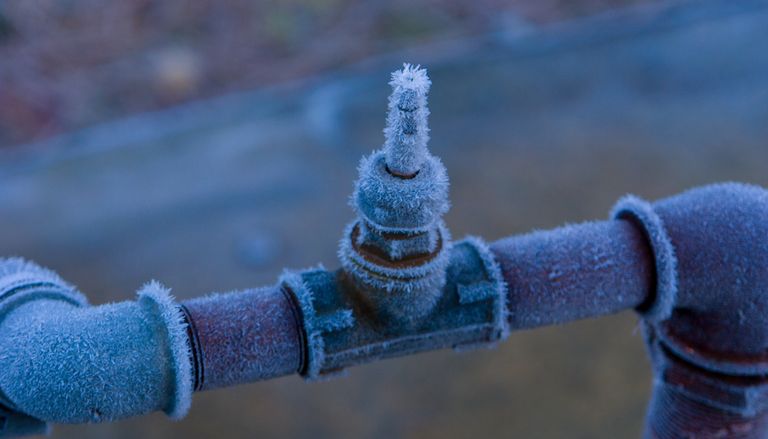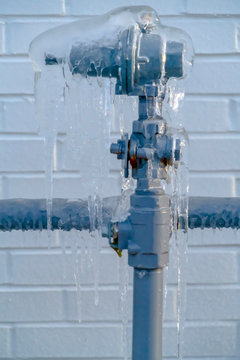Important Advice for Avoiding Frozen Plumbing in Cold Weather Conditions
Important Advice for Avoiding Frozen Plumbing in Cold Weather Conditions
Blog Article
We've discovered this article relating to How to Prevent Your Pipes From Freezing directly below on the internet and figured it made good sense to quickly share it with you in this article.

Cold weather can wreak havoc on your plumbing, particularly by freezing pipes. Here's how to prevent it from happening and what to do if it does.
Introduction
As temperatures drop, the threat of icy pipelines boosts, potentially leading to pricey fixings and water damages. Comprehending how to prevent icy pipelines is crucial for homeowners in cold environments.
Recognizing Icy Pipelines
What creates pipelines to freeze?
Pipes ice up when exposed to temperatures listed below 32 ° F (0 ° C) for prolonged durations. As water inside the pipelines ices up, it increases, taxing the pipeline walls and potentially triggering them to burst.
Risks and damages
Icy pipelines can lead to water supply disturbances, property damage, and expensive repairs. Burst pipes can flood homes and trigger comprehensive architectural damages.
Indications of Frozen Pipes
Determining icy pipelines early can prevent them from rupturing.
Just how to recognize frozen pipelines
Look for lowered water circulation from taps, uncommon smells or noises from pipes, and noticeable frost on revealed pipes.
Prevention Tips
Protecting susceptible pipes
Wrap pipes in insulation sleeves or use warmth tape to safeguard them from freezing temperature levels. Focus on pipes in unheated or exterior areas of the home.
Heating strategies
Maintain indoor rooms adequately heated up, especially areas with plumbing. Open up cabinet doors to permit cozy air to circulate around pipes under sinks.
Shielding Outdoor Pipes
Yard hoses and outdoor faucets
Detach and drain pipes yard hoses before wintertime. Mount frost-proof faucets or cover exterior taps with shielded caps.
What to Do If Your Pipelines Freeze
Immediate activities to take
If you believe icy pipelines, maintain faucets available to soothe stress as the ice thaws. Utilize a hairdryer or towels soaked in hot water to thaw pipelines gradually.
Long-Term Solutions
Structural adjustments
Take into consideration rerouting pipelines away from exterior wall surfaces or unheated areas. Include additional insulation to attics, cellars, and crawl spaces.
Upgrading insulation
Invest in high-grade insulation for pipes, attic rooms, and walls. Correct insulation assists maintain constant temperatures and decreases the danger of icy pipes.
Final thought
Protecting against frozen pipes requires positive procedures and quick responses. By understanding the reasons, signs, and preventive measures, homeowners can shield their plumbing throughout winter.
Helpful Tips to Prevent Frozen Pipes this Winter
UNDERSTANDING THE BASICS: WHY PIPES FREEZE AND WHY IT’S A PROBLEM
Water freezing inside pipes is common during the winter months, but understanding why pipes freeze, and the potential problems it can cause is crucial in preventing such incidents. This section will delve into the basics of why pipes freeze and the associated problems that may arise.
THE SCIENCE BEHIND FROZEN PIPES
When water reaches freezing temperatures, it undergoes a physical transformation and solidifies into ice. This expansion of water as it freezes is the primary reason pipes can burst. As the water inside the pipe freezes, it expands, creating immense pressure on the walls. If the pressure becomes too great, the pipe can crack or rupture, leading to leaks and water damage.
FACTORS THAT CONTRIBUTE TO PIPE FREEZING
Low Temperatures: Extremely cold weather, especially below freezing, increases the risk of pipes freezing. Uninsulated or Poorly Insulated Pipes: Pipes located in unheated areas, such as basements, crawl spaces, or attics, are more prone to freezing. Insufficient insulation or lack of insulation altogether exacerbates the problem. Exterior Wall Exposure: Pipes running along exterior walls are susceptible to freezing as they encounter colder temperatures outside. Lack of Heating or Temperature Regulation: Inadequate heating or inconsistent temperature control in your home can contribute to frozen pipes. PROBLEMS CAUSED BY FROZEN PIPES
- Pipe Bursting: As mentioned earlier, the expansion of water as it freezes can cause pipes to burst, resulting in significant water damage.
- Water Damage: When pipes burst, it can lead to flooding and water damage to your property, including walls, ceilings, flooring, and personal belongings.
- Structural Damage: Prolonged exposure to water from burst pipes can compromise the structural integrity of your home, leading to costly repairs.
- Mold and Mildew Growth: Excess moisture from water damage can create a favorable environment for mold and mildew growth, posing health risks to occupants.
- Disrupted Water Supply: Frozen pipes can also result in a complete or partial loss of water supply until the issue is resolved.
WHY CERTAIN PIPES ARE MORE PRONE TO FREEZING
- Location: Pipes located in unheated or poorly insulated areas, such as basements, crawl spaces, attics, or exterior walls, are at higher risk of freezing.
- Exterior Pipes: Outdoor pipes, such as those used for irrigation or exposed plumbing, are particularly vulnerable to freezing as they are directly exposed to the elements.
- Supply Lines: Pipes that carry water from the main water supply into your home, including the main water line, are critical to protect as freezing in these lines can affect your entire plumbing system.
- Underground Pipes: Pipes buried underground, such as those connected to sprinkler systems or outdoor faucets, can be susceptible to freezing if not properly insulated.
https://busybusy.com/blog/helpful-tips-to-prevent-frozen-pipes-this-winter/

I have been very fascinated with Preventing and dealing with frozen pipes and I really hope you enjoyed my blog entry. I beg you take the opportunity to share this content if you liked it. I cherish your readership.
Click Here Report this page